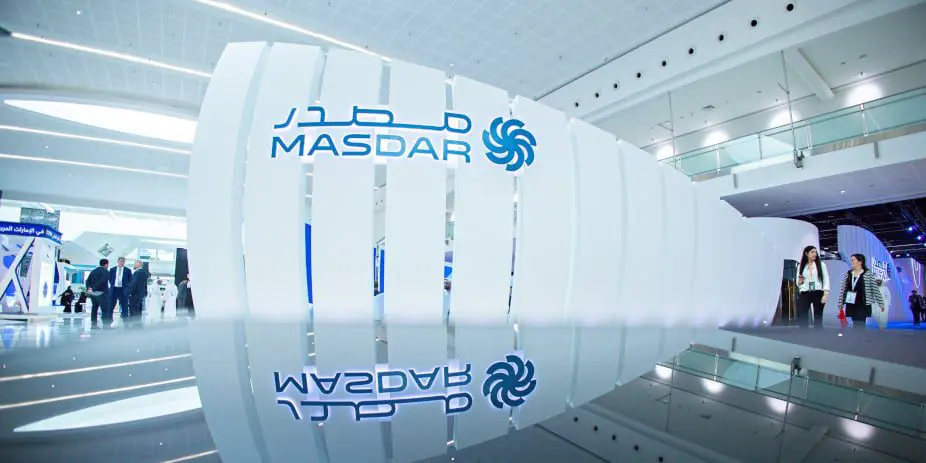Masdar, Uzbekistan Partner on 300MW Battery Storage to Strengthen National Grid

- Masdar to develop Uzbekistan’s largest standalone battery energy storage system (BESS), a 300MW/600MWh facility in Navoiy.
- The project will store enough power to supply 1.3 million homes for two hours, enhancing grid reliability and renewable integration.
- The initiative supports Uzbekistan’s target to generate 54% of its power from renewables by 2030 and Masdar’s global goal of 100GW by the same year.
Masdar Expands Clean Energy Footprint in Central Asia
Abu Dhabi Future Energy Company PJSC (Masdar) has signed an agreement with Uzbekistan’s state-owned JSC Uzenergosotish to develop the country’s largest standalone battery energy storage project. The 300MW/600MWh Zarafshan Battery Energy Storage System (BESS) will be built in Navoiy, strengthening grid reliability and supporting the integration of large-scale renewable energy across the nation.
The Battery Storage Service Agreement was signed during the Abu Dhabi International Petroleum Exhibition and Conference (ADIPEC), witnessed by UAE Minister of Energy Suhail Al Mazrouei and Uzbekistan’s Minister of Energy Jurabek Mirzamahmudov. Once operational in the third quarter of 2028, the facility will have the capacity to power approximately 1.3 million homes for two hours.
This project forms the first phase of a national battery storage program, following Masdar’s December 2023 agreement with Uzbekistan’s Ministries of Energy and Investments to develop up to 575MW/1.15GWh of BESS capacity across the country. A second 300MW/600MWh phase will later expand the Zarafshan site.
Strategic Partnership Driving Renewable Goals
Masdar’s CEO Mohamed Jameel Al Ramahi said the Zarafshan project builds on two decades of experience developing renewable and storage assets globally. “This project is a significant step in Uzbekistan’s energy transformation and a demonstration of Masdar’s leadership in global battery storage,” he said.

The partnership between the UAE and Uzbekistan reflects a deepening energy alliance. Minister Suhail Al Mazrouei described the initiative as part of the UAE’s broader commitment to advancing practical, scalable decarbonization solutions worldwide. “The Zarafshan system will strengthen Uzbekistan’s grid resilience and expand renewable integration—an ambition aligned with the UAE’s own sustainable and diversified energy future,” he said.

Uzbekistan’s Minister of Energy Jurabek Mirzamahmudov highlighted that relations between the two nations had advanced to a strategic partnership following President Shavkat Mirziyoyev’s visit to the UAE earlier this year. He cited ongoing cooperation with Masdar, which includes five operational solar plants totaling 1,247MW, a 500MW wind project, and a 63MW energy storage system already online. A 300MW solar plant is also under construction.
RELATED ARTICLE: Masdar, Iberdrola Finalize $5.6B UK Offshore Wind Deal
Scaling Energy Storage for a Renewable Future
The new Zarafshan BESS will play a central role in supporting Uzbekistan’s goal of sourcing 54% of its electricity from renewables by 2030 and achieving long-term net-zero ambitions. The project connects to the Murunau Substation, providing flexibility and reliability to balance variable solar and wind inputs into the grid.
Jahongir Obidjonov, Chairman of the Board of Uzenergosotish, said the partnership with Masdar will help accelerate the nation’s clean energy transition. “This initiative will make a significant contribution to achieving Uzbekistan’s ambitious green energy goals, and we express our sincere gratitude for this cooperation,” he said.

Masdar’s total investment in Uzbekistan now exceeds $2 billion, covering around 2GW of operating clean energy capacity. The company has also committed to developing an additional 2GW of renewable power and extending the Zarafshan project with another 300MW/600MWh storage phase.
Broader Implications for Global Energy Transition
Beyond Uzbekistan, Masdar continues to scale energy storage innovation globally. In October, it began construction on the world’s first gigascale 24/7 solar and battery project in Abu Dhabi, integrating a 5.2GW solar plant with a 19GWh storage system to deliver 1GW of baseload renewable power.
The Uzbekistan project reinforces Masdar’s ambition to reach 100GW of global renewable capacity by 2030 and positions Central Asia as a growing frontier for clean energy investment. For investors and energy policymakers, it signals the increasing role of storage technologies in ensuring reliability and scalability as renewables become dominant in national grids.
With both the UAE and Uzbekistan accelerating toward net-zero objectives, the Zarafshan BESS stands as a pivotal component of a regional energy transition that blends investment, technology, and policy alignment to secure a low-carbon future.
Follow ESG News on LinkedIn












